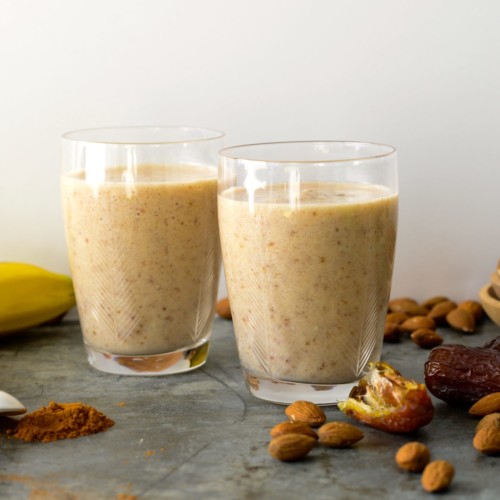In the study, the team examined 10 different plant-based drinks and compared them with cow’s milk to understand whether chemical reactions during processing affect their nutritional quality…reports Asian Lite News
While oat, almond, and soy milk have emerged as popular alternatives to cow’s milk, a new study showed it may be lacking in proteins and essential amino acids.
Over the last decade, these plant-based beverages have also seen remarkable growth in the global market due to their environmentally-friendly approach. But extensive processing is causing chemical reactions that cut down the protein quality and, in some cases, produce cancer-causing compounds, claimed researchers from the University of Copenhagen.
Lead author Professor Marianne Nissen Lund, from the varsity’s Department of Food Science said that plant-based drinks cannot “replace cow’s milk” in terms of “proper nutrition”.
In the study, the team examined 10 different plant-based drinks and compared them with cow’s milk to understand whether chemical reactions during processing affect their nutritional quality.
Lund stated that “plant-based drinks undergo more intense heat treatments than the milk to extend their shelf life” — known as ultra-high temperature (UHT) treatment, This triggers a chemical reaction between protein and sugar — called “Maillard reaction” — and reduces the nutritional quality of the proteins.
Further, she noted that while most plant-based milks contain significantly less protein than cow’s milk, the heat treatment also “leads to the loss of some essential amino acids”.
Notably, the heat treatment may also produce cancer-causing compounds, said the expert in the paper, published in Food Research International journal.
The researchers found acrylamide in four of the plant-based drinks made from almonds and oats. Acrylamide is a known carcinogen that is also found in bread, cookies, coffee beans, and fried potatoes, including French fries.
While acrylamide was found at low levels, posing no danger, its consumption “in small amounts from various sources, could add up to a level that does pose a health risk,” Lund said.
ALSO READ-Proper Nutrition in Pregnancy Key to Preventing Bone Loss













